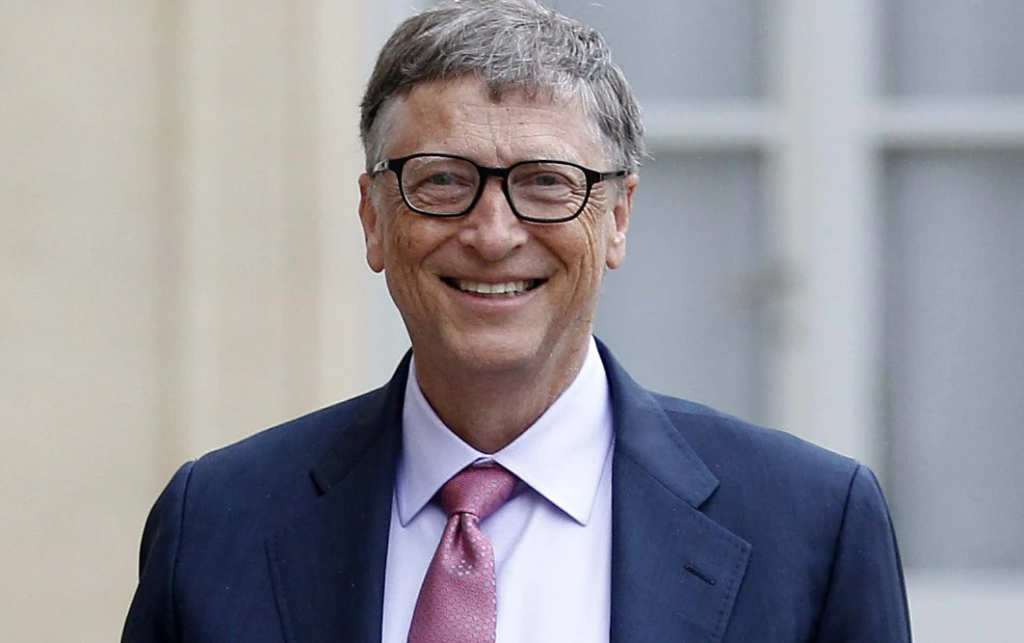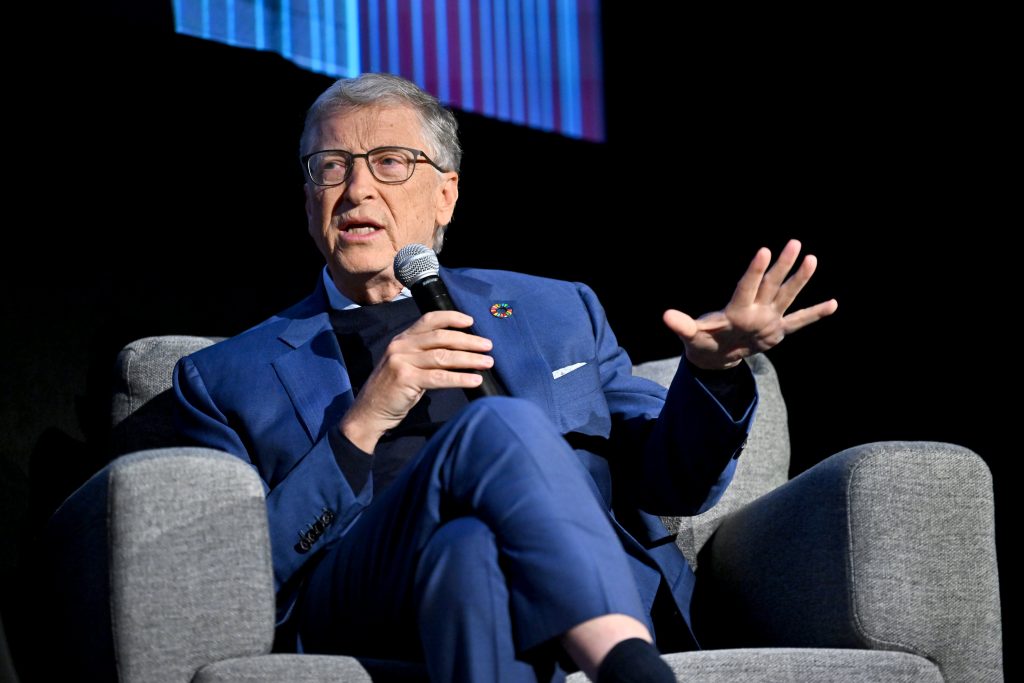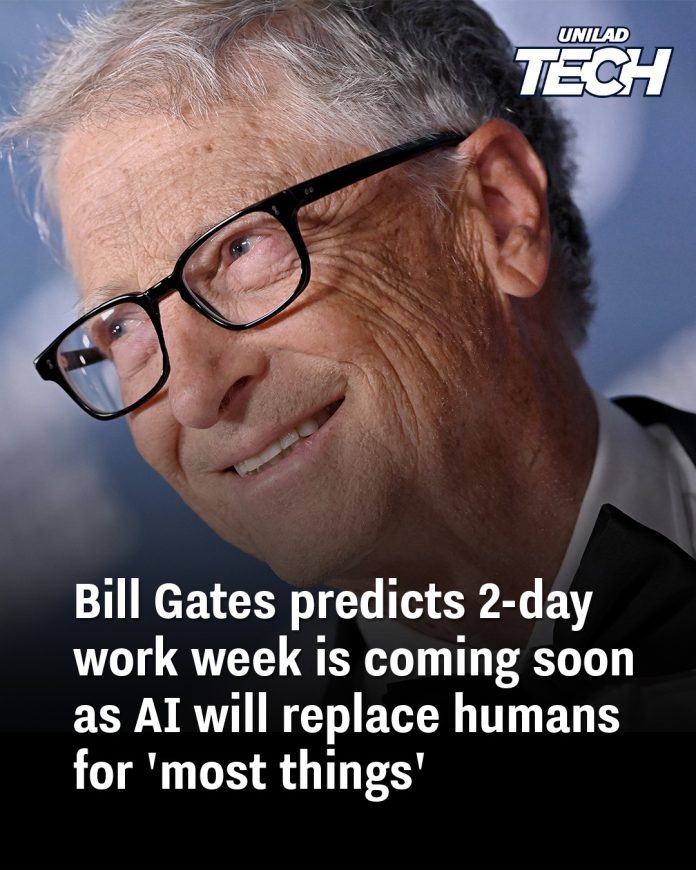In a recent interview on The Tonight Show Starring Jimmy Fallon, Microsoft co-founder Bill Gates shared his vision of a future where artificial intelligence (AI) significantly reduces the human workload, potentially leading to a two-day workweek within the next decade. Gates envisions AI taking over many tasks currently performed by humans, thereby transforming the traditional five-day workweek into a more flexible and balanced schedule.

Gates highlighted that AI’s advancement could make intelligence widely accessible, providing high-quality medical advice and education to all. He used doctors and teachers as examples, suggesting that AI could alleviate shortages in these professions by handling routine tasks, thus allowing professionals to focus on more complex responsibilities. This shift could lead to a significant reduction in working hours, enabling people to work only two or three days a week.
However, Gates acknowledged that this transition brings uncertainties. He emphasized the need to consider how jobs will evolve and whether society can adapt to such profound changes. While AI could replace humans in many areas, Gates believes that certain activities, like sports and entertainment, will remain human-centric, as people prefer human involvement in these domains.
The potential for AI to replace humans in various sectors raises concerns about job displacement and the ethical implications of such a shift. Experts like Geoffrey Hinton have warned about the widening wealth gap that AI advancements could cause, emphasizing the importance of supporting individuals who may lose their jobs due to automation. Additionally, the effectiveness of AI depends on those who control it, highlighting the need for ethical considerations and responsible governance.
Public opinion on the idea of a two-day workweek is divided. A survey conducted for The U.S. Sun revealed that only 22% of Americans believe a two-day workweek will become a reality in their lifetime, with just 7% agreeing with Gates’ timeline. Millennials are the most supportive, with nearly 75% favoring the change and willing to accept a 34% pay cut. In contrast, baby boomers are less supportive, with only 44% in favor and willing to accept a 15% pay reduction. Overall, more Americans support a four-day workweek than a two-day workweek, and the traditional five-day workweek remains the most popular.

Gates’ vision of a future with reduced working hours due to AI advancements presents both opportunities and challenges. While it offers the potential for improved work-life balance and increased accessibility to essential services, it also necessitates careful consideration of the societal and ethical implications of such a transformation. As AI continues to evolve, it is crucial to ensure that its integration into the workforce benefits all members of society.

















